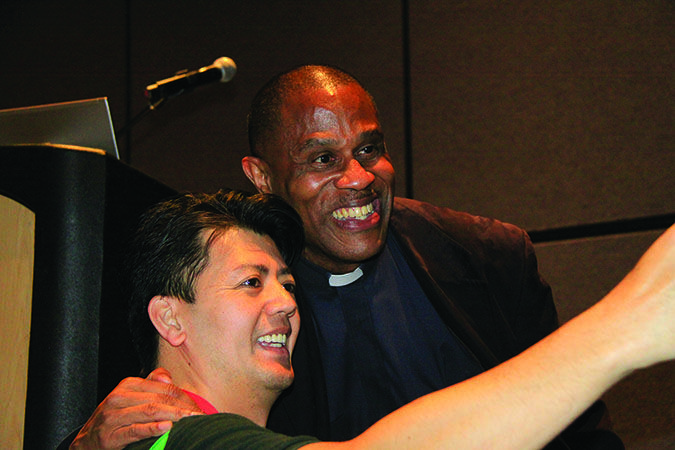Among many Catholics and non-Catholics alike, the color of one’s skin can mean an automatic “presumption of guilt,” said Father Bryan Massingale of Marquette University, author of “Racial Justice and the Catholic Church.”
“What is racism like today? Has it changed or is it the same?” the priest asked those attending his March 14 session at the Los Angles Religious Education Congress at the Anaheim Convention Center.
Slavery began in the United States in 1619 and was legally abolished in 1865, but vestiges of the culture of racism have remained, he said.
“The past is not past,” said Father Massingale, adding that racism as a culture has continued. “We learn that they are not like us [and] at a non-conscious level we can think and act as a racist.” Racially selective sympathy and indifference allow us to determine “who gets the break, the benefit of the doubt.”
Father Massingale says that in 1989 the U.S. Catholic Black bishops called the Church’s response to racism “pathetic and anemic.” In reality, and not just in rhetoric, our summons is to eradicate every form of racism.

